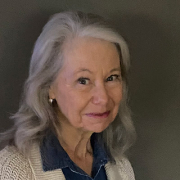When Caregiving Feels Like Groundhog Day
Sometimes you just need a break from the day in/day out routines of caregiving. Remember the Bill Murray movie "Groundhog Day"? Bill plays a weatherman who finds himself living the same day over and over again. Caregiving for an older loved one can be very much like that. It can be a life of routine; of sameness and monotony. It's an interesting conundrum that a set daily routine is so important for someone with dementia (or any other progressive chronic disease), but can take a huge toll on the caregiver's emotional and mental health.
You probably already have a routine of your own: commuting, working, housekeeping, preparing meals, managing medications, and scheduling appointments. Now add in the hours of care you need to provide to help someone else meet their daily routine and all of a sudden you and your needs, routine or otherwise, cannot be met. But sometimes you just want to do something without any real thought or planning involved; you just want to be spontaneous. Spontaneity is a spark in life. It gives us a sense of adventure, of excitement and of unexpected joy, something we all need every now and then.
It is harder to be spontaneous and break routine when you have other people's needs and routines to consider, but it can be done. It can be something impressive like taking a weekend get-away, or it can be something basic like a walk or a movie. It is something you have to arrange. I know, that sounds like the opposite of spontaneity. So let s call it "planned spontaneity"; an effort you will have to make to bring that adventure, excitement and joy into your life.
Respite care (or short term care) can help. Informal respite care can be as simple as asking a family member, a friend, or a neighbor to be a companion to your loved one for a few hours so you can get out. Formal respite services include in-home services, center-based services such as an adult day program or overnight /week long services at an assisted living, personal care or memory care facility.
Respite care can give you the support you need for your planned spontaneity. Respite care may also be used when an emergency occurs; what would you do if you find yourself in a health crisis or are hospitalized?
It is important to identify and locate the respite services that are available to you before you actually need them.
- Make a list; UK Elder Care can help identify the different services available in your area.
- Call each agency/facility. Ask if they have a 'care philosophy' that guides how they communicate and care for their clients/residents. Find out what 'care training' the staff receives and what the staffing levels are. CPR training is NOT enough. Determine if the clients/residents are allowed to make their own choice about meals, bedtimes and activities. What is the visitation policy and what are the security and safety procedures.
- Make a visit to the facility. Check out the physical condition; how the staff interacts with visitors and how the residents are taken care of. Ask for a copy of their accreditation and official policies.
- In order to make yourself comfortable with your decision you have to do your homework. You don't want to second guess yourself instead of taking the time away to relax and re-energize. The effort you put into making your respite time happen is well worth the extra energy, time and peace of mind.
